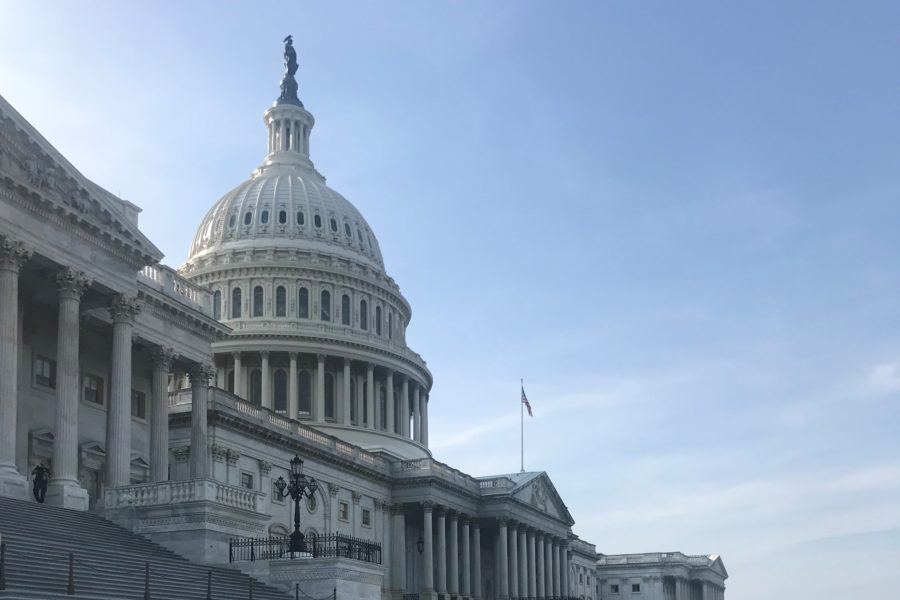The Senate is set to consider a measure that would break the massive logjam of general and flag officer nominations in the chamber. On Nov. 14, the Senate Rules Committee voted to report favorably on the resolution from Sen. Jack Reed (D-R.I.), and Majority Leader Sen. Chuck Schumer (D-N.Y.) said he would bring it up for consideration on the Senate floor “shortly.”
Reed’s resolution would create a temporary standing order for the rest of this Congress—ending Jan. 5, 2025—allowing for “en bloc” consideration of nominees. That would let the Senate vote on groups of nominations, with exceptions for members of the Joint Chiefs of Staff and head of combatant commands, and prevent any single Senator from blocking the process.
Since March, Sen. Tommy Tuberville (R-Ala.) has placed a legislative hold on general and flag officer nominations to protest a Pentagon policy providing paid leave and travel funds for troops requiring reproductive services, including abortions, who are based in states where those services are not available.
That hold prevents quick consideration and voice votes on the nominations, which are typically uncontroversial and unanimous. As of Oct. 31, there were 379 nominations pending.
Nominations can still be called up for individual consideration, as the Senate did for Chairman of the Joint Chiefs of Staff and service chiefs for the Air Force, Army, Navy, and Marine Corps. But for the most part, Schumer and the Democratic majority have resisted individual votes, saying it would take up too much floor time and encourage more blockades like Tuberville’s in the future.
Meanwhile, some of Tuberville’s fellow Republicans have also expressed frustration with the situation. On Nov. 1, five Republican Senators attempted to call up dozens of nominees for unanimous consent votes, only to be blocked by Tuberville.
“I think one of the most decisive actions was, frankly, my Republican colleagues going to the floor … standing up and saying this is not what we should be doing,” Reed noted Nov. 14 at POLITICO’s Defense Summit. “We should drop these holds immediately, we should confirm these officers, and allow them to go where they’re needed. We have serious challenges across the globe.”
However, it remains unclear whether enough Republicans will vote for Reed’s resolution for it to pass. On the Rules Committee, all seven Republicans present voted against the measure.
Minority Leader Sen. Mitch McConnell (R-Ky.) said “productive discussions” about how to resolve Tuberville’s hold are still ongoing and “I’m of the mind that we ought to allow them to continue.” However, he hinted that his patience was wearing thin.
“I appreciate the work put into the standing order proposal that the committee is considering, but I’m going to oppose taking that route at this particular moment,” McConnell said.
Sen. Deb Fischer (R-Neb.), a senior member of the Senate Armed Services Committee and the ranking member on the Rules Committee, argued that Reed’s resolution would “alter Senate process and undermine the long-standing traditions of the Senate,” which allow for legislative holds.
Reed, however, argued during the POLITICO event that Tuberville had “abused the rules” and hurt military readiness with his blockade.
If every Democrat votes in favor of Reed’s resolution, it would need nine Republicans to reach the needed 60-vote threshold. Reed sounded cautiously optimistic about its passage.
“We’re going to finally, I hope, take action to put us back on a course where one person can’t essentially stop the Senate,” he said.
Schumer, speaking before the Rules Committee vote, said that “if my Republican colleagues can’t convince Sen. Tuberville to relent, I will bring it to the floor shortly for a vote. We need to get these military nominees confirmed ASAP for the sake of our national security.”
In a statement released after the committee vote, Reed indicated that final consideration on the Senate floor will take a back seat for at least a few days, as Congress works to avoid a government shutdown on Nov. 17.
In the meantime, more than 110 Air Force and Space Force nominations remain pending, including vice chiefs for both services, three combatant commanders, the heads of two Air Force major commands, and all three Space Force field commands.
